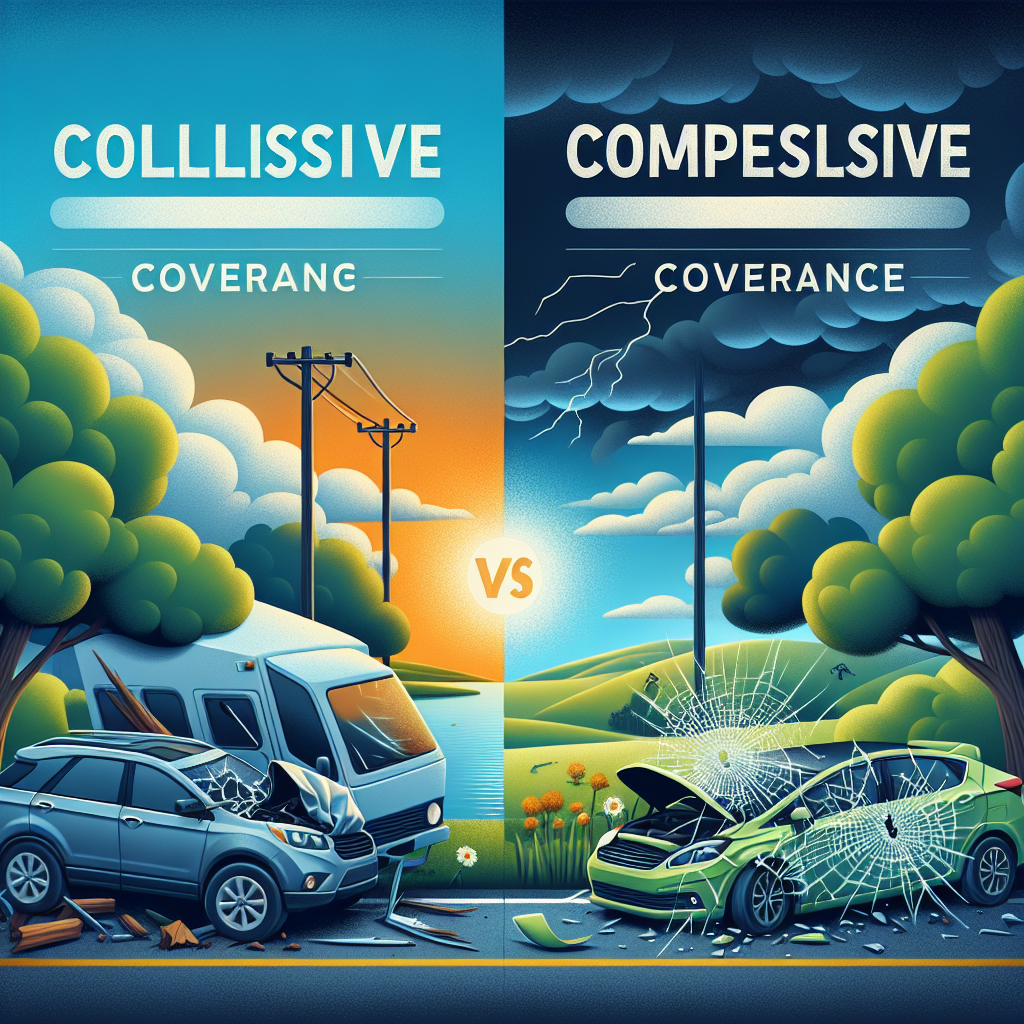When it comes to car insurance, understanding the different types of coverage can help you make informed decisions and protect your investment. Two of the most common types of coverage are comprehensive and collision coverage. But what do these terms mean, and how do they differ? Let’s break down these concepts in a way that’s easy to understand.
What is Collision Coverage?
Collision coverage is a type of auto insurance that helps pay for damage to your vehicle, regardless of who was at fault in an accident. If you hit another car, a stationary object, or if you flip your car over, collision coverage can help cover the repair or replacement costs of your vehicle.
Why is Collision Coverage Important?
-
Accidents Happen: Car accidents can happen to anyone, and having collision coverage can alleviate the financial stress of repairing your car.
-
Loan or Lease Requirements: If you are financing or leasing your vehicle, your lender may require collision coverage as part of your insurance policy.
- Peace of Mind: With collision coverage, you can drive with confidence, knowing that you are protected in the event of an accident.
What is Comprehensive Coverage?
Comprehensive coverage, on the other hand, protects your vehicle from non-collision-related incidents. This can include a variety of scenarios, such as theft, vandalism, natural disasters, or hitting an animal. Essentially, it covers damages that are not a direct result of a collision with another car or object.
Why is Comprehensive Coverage Important?
-
Protection Against the Unexpected: Comprehensive coverage helps safeguard your vehicle from unexpected events that could cause significant financial strain.
-
Peace of Mind: Knowing that your vehicle is protected from non-collision incidents can give you much-needed peace of mind, especially in areas prone to natural disasters.
- Lender Requirements: Similar to collision coverage, comprehensive coverage may be required by your lender if you have a loan or lease on your vehicle.
Key Differences Between Comprehensive and Collision Coverage
Scope of Coverage
- Collision Coverage: Only applies to damage resulting from a collision, regardless of fault.
- Comprehensive Coverage: Covers a range of non-collision-related incidents, including theft and natural disasters.
Types of Claims
- Collision Coverage: File a claim if you collide with another vehicle or object.
- Comprehensive Coverage: File a claim for incidents like vandalism, fire, or acts of nature (e.g., a tree falling on your car).
Cost Factors
Both types of coverage can impact your insurance premiums. Generally, collision coverage can be more expensive due to the higher likelihood of accidents. Comprehensive coverage can vary in cost based on factors such as the likelihood of theft or natural disasters in your area.
Choosing the Right Coverage for You
When deciding between comprehensive and collision coverage, it’s important to consider several factors:
-
Your Driving Habits: If you often drive in busy areas or have a lengthy commute, collision coverage may be more critical for you.
-
Your Vehicle’s Value: If you own a newer or high-value vehicle, investing in both types of coverage may be worthwhile.
-
Local Risks: If you live in an area prone to natural disasters or high theft rates, comprehensive coverage becomes increasingly valuable.
- Budget Considerations: While having both types of coverage is ideal for comprehensive protection, your budget may influence your decision. Consider which coverage aligns best with your financial situation and risk assessment.
Conclusion: Making Informed Choices
Understanding the difference between comprehensive and collision coverage is vital for selecting the right auto insurance policy. Both types serve unique purposes and can act as a safety net against unforeseen circumstances. By assessing your driving habits, vehicle value, and local risks, you can make an informed decision that provides you with the right protection.
Remember, it’s always a good idea to consult with your insurance agent to tailor a policy that best fits your needs. With the right coverage in place, you can enjoy the road ahead with peace of mind.


